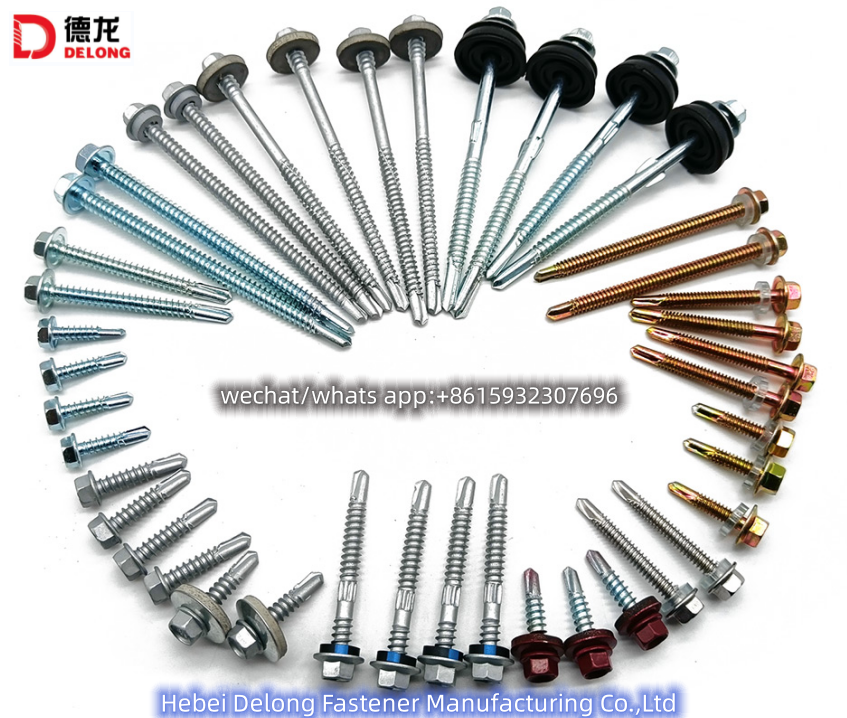custom typical drywall screw length
Understanding Custom Typical Drywall Screw Lengths
When it comes to construction and home improvement projects, selecting the right materials is crucial for both the durability and aesthetics of the finished product. Among the myriad of materials used, drywall is one of the most common due to its versatility, ease of installation, and cost-effectiveness. However, the success of drywall installation hinges significantly on the type of screws used, particularly their lengths. This article delves into the importance of choosing the custom typical drywall screw length for various applications in drywall installation.
The Basics of Drywall Screws
Drywall screws are specifically designed for fastening drywall sheets to frame structures, whether they be wood or metal studs. These screws are distinctive because they feature a bugle-shaped head, which helps to countersink the screw into the drywall, preventing damage to the surface and ensuring a smooth finish for painting or other finishing touches. They also come in various lengths and diameters, which are important variables to consider when choosing the right screw for a job.
Importance of Screw Length
Selecting the appropriate screw length is essential for ensuring a secure fit. If the screw is too short, it may not penetrate deeply enough into the stud or the underlying structure, resulting in a weak hold that could lead to sagging or even detachment over time. Conversely, if the screw is too long, it can protrude through the drywall, creating a rough surface and potentially damaging electrical wiring or plumbing behind the wall.
A typical drywall screw length used for standard installation is 1-1/4 inches to 2 inches, depending on the thickness of the drywall and the material of the studs. Standard drywall sheets are usually 1/2 inch thick; therefore, screws that are 1-1/4 inches long are generally sufficient as they penetrate the stud by approximately 3/4 inch. For thicker drywall, such as 5/8-inch boards, a 1-5/8 inch screw would be advisable to ensure a strong attachment.
Custom Lengths for Unique Needs
custom typical drywall screw length

While typical lengths suffice for many applications, there are instances where custom lengths are necessary. For example, when you're dealing with soundproof drywall or specialty boards, you may require longer screws to ensure a solid hold. Additionally, projects that involve layering drywall (for insulation or additional soundproofing) would necessitate screws that are longer than standard sizes.
Specialty projects, such as curved walls or ceilings, may also require screws of a specific length to accommodate the angles of installation. In such cases, it’s advisable to consult with a professional or refer to manufacturer guidelines to select the best screw length for your project.
Additional Considerations
In addition to length, the type and gauge of drywall screws play a critical role in the installation process. Drywall screws are usually made of steel and come in different gauges. The gauge indicates the thickness of the screw, with higher numbers representing thinner screws. For standard drywall applications, a 6 or 8 screw is typically sufficient. However, when installing denser materials or dealing with heavier drywall sheets, opting for a thicker gauge can provide additional strength and stability.
Furthermore, considering the coating of drywall screws is also essential. Screws that are coated with materials like phosphate can offer better resistance to rust and corrosion, particularly in humid environments. This is a vital aspect to consider if the drywall installation is in areas subject to moisture, such as bathrooms or kitchens.
Conclusion
Choosing the right drywall screw length is critical for ensuring a successful installation. While typical lengths may serve most applications, understanding the nuances of custom lengths can significantly enhance the overall integrity and durability of your drywall projects. Always consider the thickness of the drywall, the material of the studs, and any unique circumstances of your project when selecting screws. When in doubt, consultation with a professional can provide clarity and guidance to ensure the best results. Proper screw selection is not just a minor detail; it is an investment in the longevity and quality of your drywall installation.
-
Top Choices for Plasterboard FixingNewsDec.26,2024
-
The Versatility of Specialty WashersNewsDec.26,2024
-
Secure Your ProjectsNewsDec.26,2024
-
Essential Screws for Chipboard Flooring ProjectsNewsDec.26,2024
-
Choosing the Right Drywall ScrewsNewsDec.26,2024
-
Black Phosphate Screws for Superior PerformanceNewsDec.26,2024
-
The Versatile Choice of Nylon Flat Washers for Your NeedsNewsDec.18,2024










